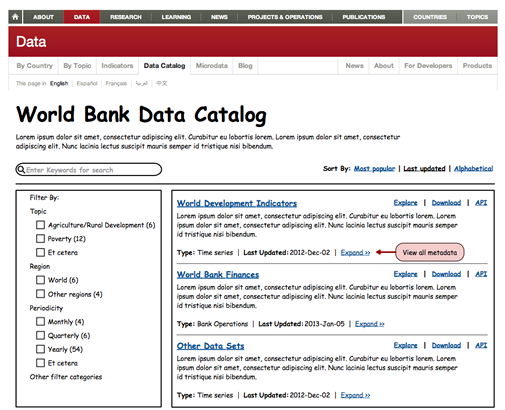The Future of the Open Data Catalog

This is a wifreframe from the World Bank showing a search interface for their highly respected data catalog. Searchable Data Sets? Check out the #wireframe for a fully searchable data catalog. This is where #opendata needs to head. Citizens do not browse data like kids in a candy store. I have asked about engagement and watched them interact with open data sets and not one non-data geek ever found them interesting. For methodology I chose sets of sets of 3-5 people and just asked them questions and sent them links. These people came from my Facebook groups of friends and do not have a professional connection with me. When I asked them about their browsing patters in general most people used Google Search to find specific information or started with a list of 10 or less "go to" sites. Data sets need to be searchable and queries need to come from Google and index both the data sets themselves and be able to interpret natural language queries before will be mainstream and of i...

